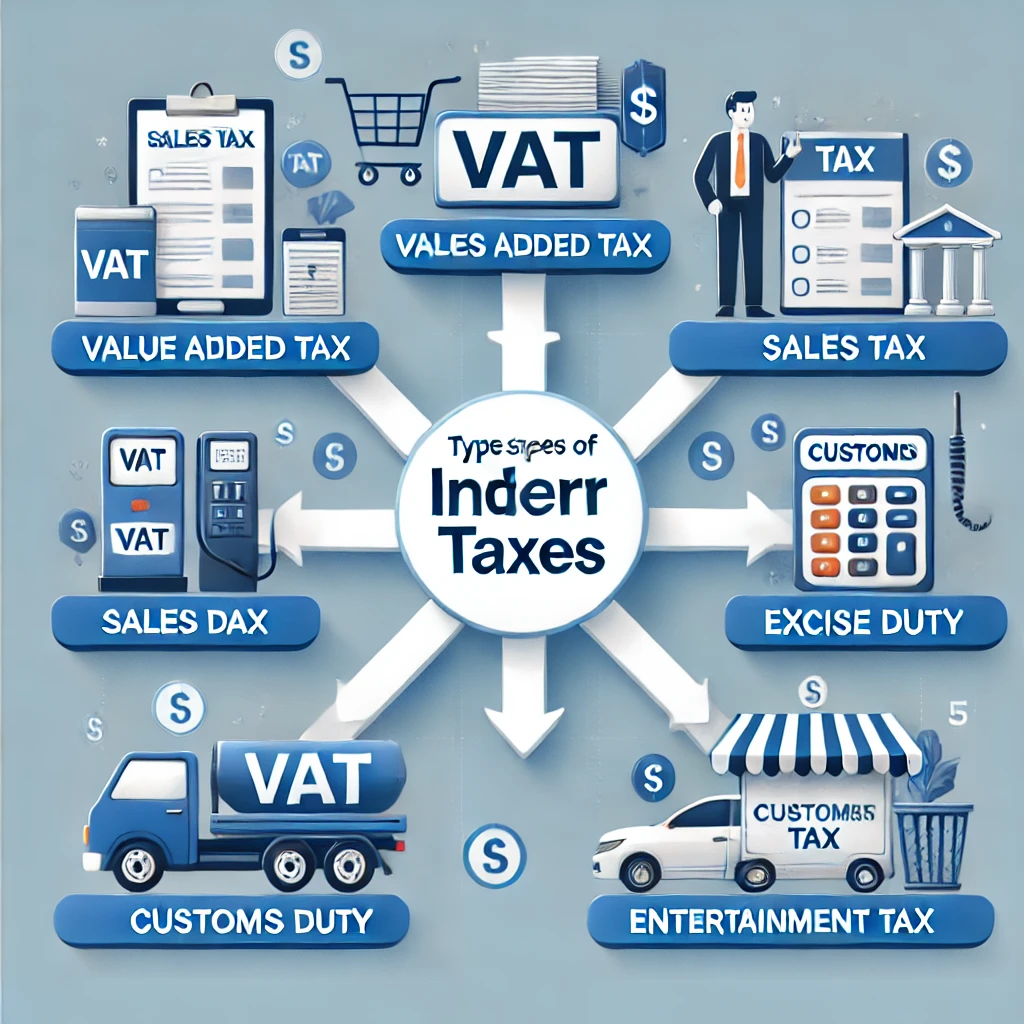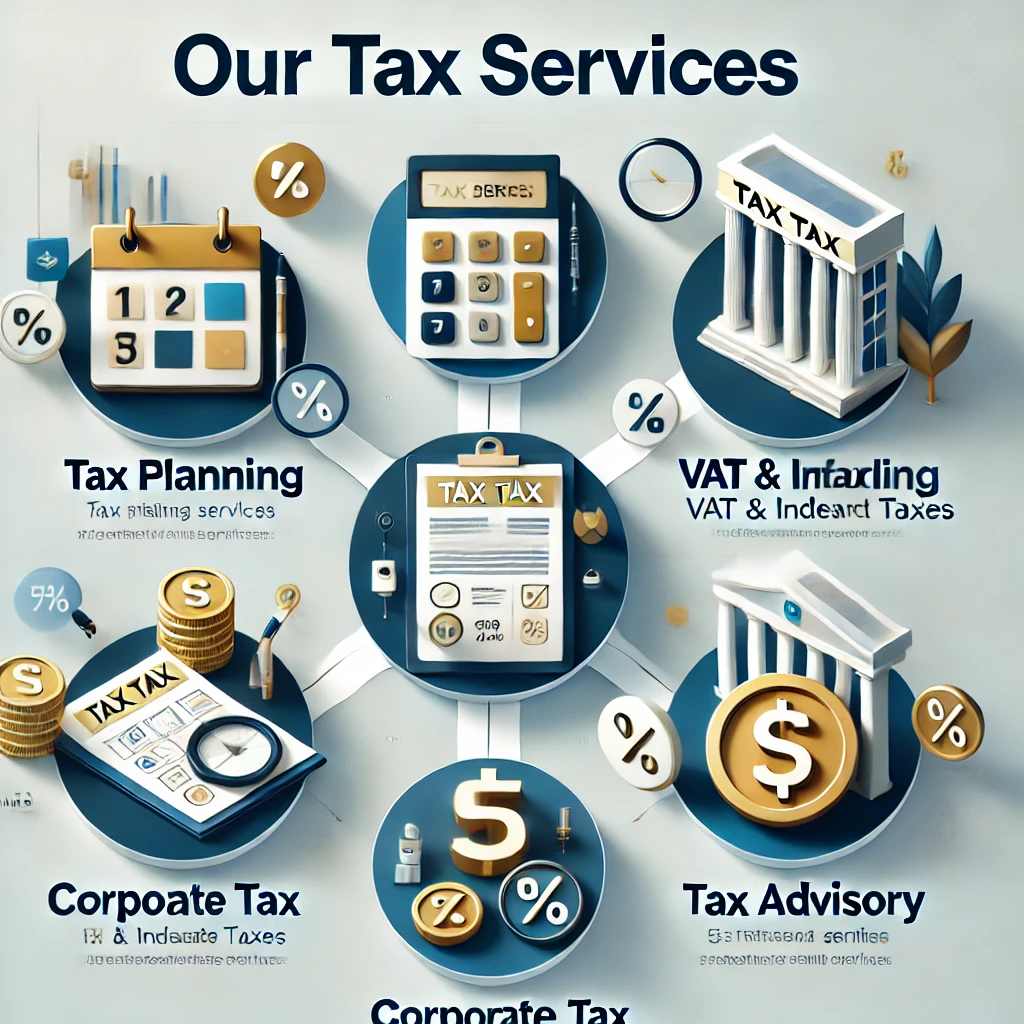
VAT and indirect tax lawyers
Value-added taxes and other indirect tax have a significant impact on business operations, financial flows, and the competitiveness of companies in various jurisdictions. In international transactions, issues of proper accounting and optimization of VAT and excises become even more complex, and incorrect application of regulations can lead to large fines and lengthy legal disputes.
Timely resolution of indirect tax issues will help improve cash flow, reduce absolute costs, the risk of additional tax assessments, interest and penalties, profit audits, and litigation. Our VAT law firm provides assistance in analyzing tax risks, supporting international transactions, interacting with regulatory authorities, and auditing the internal tax accounting system.

What is an indirect tax?
Indirect tax is a tax that is not levied directly on the income or property of the taxpayer but through their expenses when purchasing goods and services. In other words, it is embedded in the final price of a product and paid by the consumer indirectly, along with the cost of the goods or services. The most well-known examples of indirect taxes are value-added tax, excises, and duties.
How does indirect tax work? The manufacturer or seller adds the tax amount to the cost of the goods or services. When purchasing, the consumer essentially reimburses this tax, which is included in the final price. Thus, indirect tax moves “down the chain”: from the manufacturer to the wholesaler, from the wholesaler to the retail store, and, eventually, to the end buyer.
The taxpayer in the eyes of the state is formally the seller, who regularly reports and transfers the collected amount to the state budget. But ultimately, the economic burden is borne by the buyer, paying the increased price of goods or services.
Government agencies set indirect tax rates and determine the categories of goods or services to which they apply. Such taxes are one of the key sources of budget revenue and serve as a tool for economic regulation.
Since almost every buyer of goods and services pays an indirect tax, the coverage of collections is extensive. Consumption is stable, so revenues from indirect taxes are predictable and consistent.
Types of indirect taxes
Among the most common types of indirect tax, the following should be highlighted:
Value Added Tax (VAT). It is charged at each stage of the production and distribution chain of goods; however, payments are made to the budget only at the final sale, while an offset mechanism is applied in intermediate transactions (sales tax minus taxes from previous stages). VAT applies to almost all types of goods and services, except for special preferential categories. In fact, the tax in its final form is borne by the consumer, as they pay VAT already included in the price of the goods or services.
Excise. A surcharge on goods of a certain category (alcohol, tobacco, fuel) aimed either at regulating their consumption or providing additional revenue for the government. Excise can be set as a percentage of the value (ad valorem) or as a specific amount per unit of goods (specific excise). Manufacturers and distributors are required to report the quantity of produced or imported goods, paying the excise in accordance with established procedures. Non-compliance with the rules may result in hefty fines.

Duties. A fee collected by the state during the import or export of goods. A duty increases the cost of imported goods, thereby protecting local producers or generating additional government revenue. The most common are Import Duty, while Export Duty is imposed less frequently and usually on limited categories of raw materials or strategic goods. The differentiation of rates depends on the product code (according to the HS code), the country of origin, and trade agreements (for example, free trade zones).
In addition to the main ones, there are other types of indirect tax: environmental fees (levied on environmentally harmful goods), gambling tax, tourist tax, and others.
Our VAT law firm provides support on issues of VAT, excise duties, customs duties, and other indirect taxes. We will help structure activities correctly, optimize taxation, and avoid penalties.
What is the difference between direct and indirect tax?
Taxes are divided into 2 main types: direct and indirect. Each of them plays its own role, has its own characteristics, and affects both citizens and companies differently.
Direct tax is a tax that the government collects directly from the income, property, or profits of the taxpayer. A direct tax is calculated based on the ability to pay (those who earn more or own expensive property pay higher). Administration involves regular reporting (income declarations, financial statements).
Examples:
- Income Tax: levied on wages and other types of income of individuals;
- Corporate Tax: companies pay tax on net profit;
- Property Tax: paid by owners of real estate and other valuable assets.
Indirect tax is a tax included in the final price of a product or service, which is formally paid by the seller but in fact, the expense is passed on to the buyer. We have previously discussed examples and features of this type of tax.
Let’s consider the key differences between direct and indirect tax:
| Criterion | Direct tax | Indirect tax |
|---|---|---|
| Object of taxation | Levied on income, capital, property | Formed through consumption, included in the cost of goods and services. |
| Payment mechanism | The taxpayer pays directly, usually through an income/profit declaration. | Formally, the seller collects it, but the payment is actually borne by the buyer, as the tax is included in the final price of the product. |
| Calculation and administration | Requires the taxpayer to submit periodic reports (declarations). | It is automatically charged during the sale of goods or services, and its administration is entrusted to the selling company. |
| Socio-economic effect | They have a progressive nature (the more one earns, the higher rates they pay). | Regressive, as the same rate affects both the wealthy and low-income population. |
| Stability of income | Revenues depend on economic cycles and the income of the population or businesses. | Relatively stable and predictable, as consumption occurs constantly, even during periods of economic downturn. |
Direct and indirect taxes complement each other in the fiscal system, providing the state with stable sources of revenue. Direct taxes depend on income and property, whereas indirect tax is embedded in the consumption chain of goods and services. Understanding how these types of taxes work allows companies and citizens to optimize activities and avoid potential conflicts with tax authorities.
Our tax services

Indirect tax has a significant impact on the financial condition of a business. Changes in rates, new directives, or customs clearance rules can affect both the company’s internal operations and cross-border transactions. Collaboration with experienced indirect tax lawyers provides an opportunity to timely account for tax risks, optimize costs, and avoid violations leading to fines and legal conflicts.
Our lawyers have many years of experience in the field of indirect tax and successfully advise clients in various jurisdictions. From initial analysis to court defense in tax disputes, we handle all aspects of legal support.
We enhance the value of supply chain restructuring, cross-border mergers and acquisitions, as well as business integration projects through thoughtful structuring of VAT and federal indirect tax.
Taxation and VAT consulting
Our VAT law firm conducts an audit of the company’s current operations to identify sources of overspending or incorrect VAT accounting. Based on this, we develop a scheme that allows minimizing the tax burden while maintaining full compliance with the law.
Correct and timely declaration is the foundation for avoiding penalties and inspections from tax authorities. Our specialists will prepare reports, verify the accuracy of calculations, and submit declarations in the required format.
During a tax audit, we communicate with inspectors, prepare explanations, and defend the client’s interests in case of claims.
In the context of international trade, errors in determining the place of delivery or complications with reverse charge VAT can lead to multiple payments or double taxation. We provide consultations on reimbursement issues and interaction with foreign counterparties.
Consultations on customs and excise duties
Our indirect tax lawyers analyze import-export operations, help correctly classify goods, and calculate duties in accordance with HS codes (ТН ВЭД). This reduces the risk of overpayment and cargo delays.
We take on the interaction with customs authorities, check the correctness of filling out declarations, verify invoices and certificates of origin for goods.
For companies involved in tobacco, alcohol, fuel, and other excisable categories, it is important to correctly calculate excise taxes and prepare accompanying documents. Any mistake can result in significant fines.
With proper supply chain planning, overall costs for duties and excises can be reduced. We will advise where it is better to store goods, how to use free economic zone regimes, and preferential trade agreements.
If the state believes that goods are incorrectly classified or the customs value is understated, we protect your interests in pre-trial proceedings and, if necessary, in court.
Regular audits of procedures in the field of customs clearance and excise prevent potential violations and streamline the company’s internal regulations.
Assistance with environmental and gambling taxes
Many countries are introducing additional taxes on CO2 emissions, the use of plastic packaging, fishing, and other aspects related to environmental protection. We provide consulting on how to comply with these regulations and optimize costs.
Casinos, bookmakers, online gambling—all these types of activities fall under special regulation and taxation. Our lawyers will help you choose the appropriate jurisdiction, obtain a license, and resolve issues with local regulators.
In a number of countries, in addition to basic taxes, there are varying degrees of restrictions on advertising gambling or environmentally harmful products. We study local requirements to ensure that the client’s activities comply with both tax and marketing regulations.
For goods affecting the environment or having “dual-use,” special excises and duties may apply. We help companies process paperwork and comply with licensing requirements.
Conflicts with regulatory authorities or claims regarding tax underreporting may reach court. Our firm is capable of protecting your interests by understanding the specifics of environmental and gambling legislation.
Contact us right now for an initial consultation and discussion of further steps to protect your interests. Our services can help you save time, resources, and ensure the security of operations with indirect tax.



